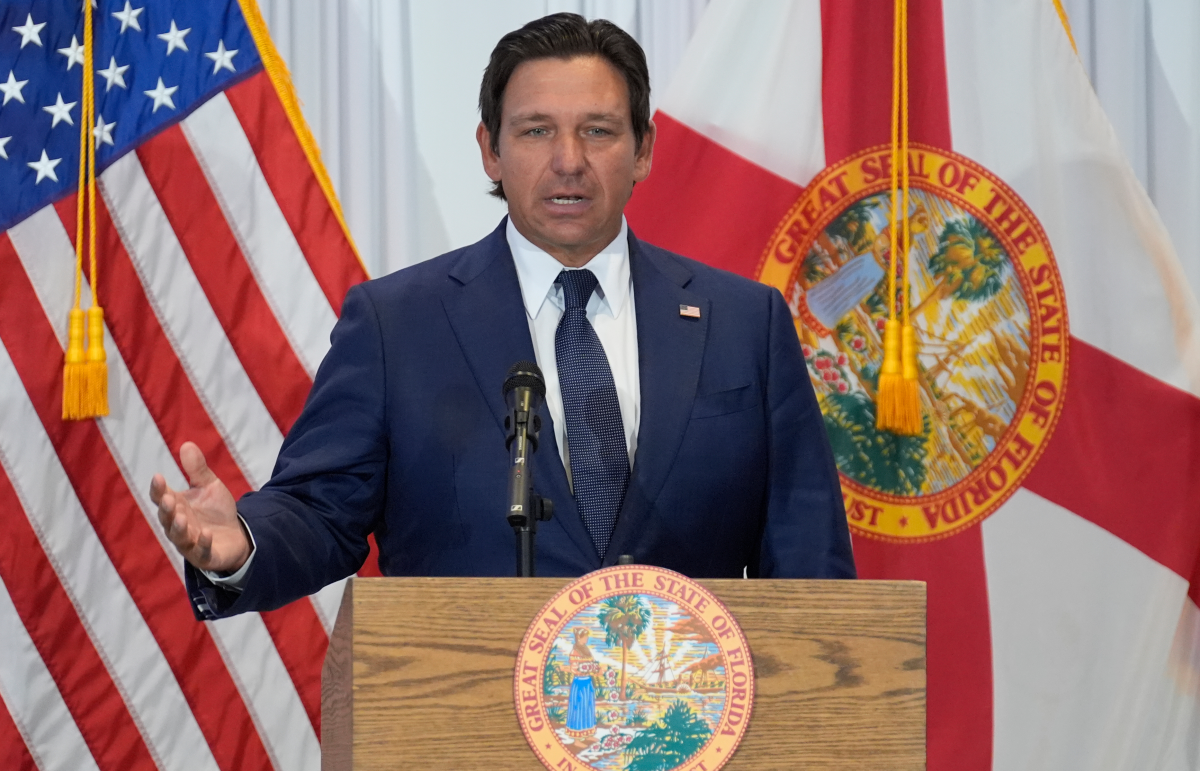Copyright Newsweek

Florida Governor Ron DeSantis has recently suggested that the way health care is provided to those under the age of 50 needs to change. In a fireside chat with former U.S. Secretary of State Condoleezza Rice at the Hoover Institution on Friday, DeSantis said that he thought those under 50 would benefit from having "a catastrophic plan that's affordable," rather than broader health coverage plans. Newsweek contacted the press office of DeSantis for additional comment on the subject, and was informed the governor's most recent comments had been shared in his interview with Rice. The office did not add anything else in their response. Why It Matters How health insurance systems operate in America, and their cost efficiency, has come increasingly under scrutiny during the second term of President Donald Trump: not only with cuts and changes to the federal health programs Medicaid and Medicare, but also changes to Affordable Care Act (ACA) plans. As many Americans are struggling with extremely high medical costs, finding a way of reducing monthly premium costs for plans, while not compromising too significantly on coverage, is an important issue in the health insurance landscape. What To Know In his conversation with Rice, DeSantis suggested that most people under the age of 50 tend to not require medical services on a routine basis. As a result of that, he said he thought "what we want and what the federal government really won't allow" is for those younger than 50 to instead use catastrophic health coverage. Catastrophic plans are designed to protect consumers from very high medical costs in the event of serious illness or injury while having lower monthly premiums. Usually, those who quality for these plans are under 30 and are faced with a kind of "hardship", which are circumstances such as homelessness, eviction, natural disasters, bankruptcy, medical debt and others. Hardships are often calculated based on an individual's projected annual household income. Recently, eligibility for these plans has expanded to include those who are set to become ineligible for advance payments of the premium tax credit (APTC) or cost-sharing reductions (CSRs) due to their projected annual income being either below 100 percent or above 400 percent of the federal poverty level, which comes as the enhanced tax credits are set to expire at the end of the year. DeSantis also said he thought alongside a kind of catastrophic health coverage plan, those under 50 should have a health savings account, which is typically a tax-advantaged personal savings account that allows users to set aside pre-tax money for medical expenses as part of a high-deductible health insurance policy. These are policies with lower premium costs, but being a high-deductible plan, what it covers doesn't reach as far as some other plans. Sabrina Corlette, a professor and co-director of the Center on Health Insurance Reforms at Georgetown University, told Newsweek that she thought what DeSantis was meant by catastrophic coverage was "basically a high deductible health plan." "It's been a while since Governor DeSantis was in the private sector, so he may be unaware that these are actually very common in the market today, either with or without a [health savings account]," she said. She said that the choice of a high deductible plan is "a personal decision, and will depend on your health status, income level, and risk tolerance." "Unfortunately, one thing we do know from the research literature is that many people with high deductible plans forego necessary primary and preventive care, which can often mean delayed diagnoses and worse health outcomes," she added. She also said that this can mean that when users finally seek treatment, "they're having to go to higher-cost settings like hospital emergency rooms." Ultimately, she said "this isn't really a new idea, these types of plans are widely available today." What People Are Saying DeSantis said: "I think that we want and what the federal government really won't allow is most people, particularly under 50, what they really need is a catastrophic plan that's affordable, where they can pay whatever they're doing out of a health savings account. Most people outside of paying insurance premiums are not paying a lot for medical on a routine basis. I know in the Navy, they told me to take something, I would do it, but other than that, I never did." Ge Bai, a professor of health policy and management at Johns Hopkins Bloomberg School of Public Health, Maryland, told Newsweek: "This approach would remove regulatory protections that have steered business to insurers, forcing them to compete directly for consumers by offering insurance plans with lower price and higher quality. The same would apply to downstream providers, who would have to win patients through superior service with competitive pricing. Ultimately, patients would be the winners." Jonathan Gruber, a professor of economics at Massachusetts Institute of Technology, told Newsweek: "A common conservative criticism of public provision of health insurance is that we should just give folks 'skinny' or 'catastrophic' plans. But what these critics never grapple with is what would be included in these plans. By the time you include anything that would be considered decent insurance – hospital, doctor, drugs, maternity care, mental health care – you are already at 90 percent of the cost of a generous insurance plan. The only way to really make a plan 'skinny' is to charge high deductibles, which many plans on the exchange already do." What Happens Next It is not yet clear if DeSantis hopes to push this idea further, or whether he was merely throwing out a discussion point, and his office did not comment on Newsweek's questions about whether the governor was hoping to pursue this health coverage change.



